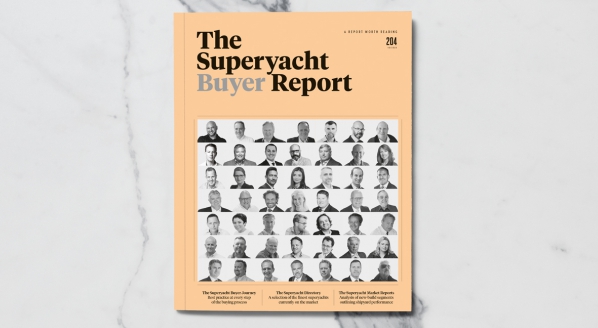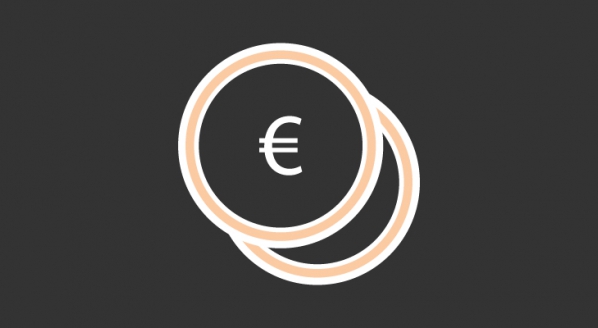To lease or not to lease
The risks of using leasing schemes when purchasing vessels in Italy…
Gianfranco Puopolo and Domenico Rinaldi, of PG Legal’s superyacht team, assess the risks of using leasing schemes when purchasing vessels in Italy.
Leasing schemes are an alternative way to acquire a yacht as opposed to a standard sale and purchase. Such schemes, quite common in Europe, allow the ultimate beneficial owner (UBO) of a yacht to mitigate the VAT applicable to the purchase price and/or to defer the payment of the VAT. However, recent developments regarding anti-avoidance tax laws and anti-money laundering (AML) regulations have created serious doubts about using such schemes when purchasing a yacht in Italy.
 Gianfranco Puopolo (left) and Domenico Rinaldi (right)
Gianfranco Puopolo (left) and Domenico Rinaldi (right)
AML rules and international information exchange agreements
Italy has fully implemented EU directives on anti-money laundering (legislative decree No 231 of 21 November 2007 and subsequent amendments). These rules require Italian legal professionals to identify the UBO of corporate structures involved in the transactions for which they provide their professional services. This information is fully accessible to both the tax and judicial authorities. In addition, these professionals are required to report suspicious transactions (including tax fraud) to the national anti-money laundering authorities.
The past 20 years have seen a worldwide radical evolution of financial information exchange. Until a few years ago, it would have been unthinkable for Switzerland and Monaco to give out information on the beneficial owners of bank accounts; today, it’s normal. In this context, Italy has adhered to the Common Reporting Standard agreement and every year obtains the names of ultimate beneficial owners of bank accounts (even if they are formally in the name of corporate entities) located in foreign banks. Moreover, thanks to its network of double taxation conventions, Italy can carry out effective bilateral information exchanges with the tax authorities of other countries, both EU and non-EU.
This means the UBOs of any corporate structure are visible to the Italian tax authorities.
General anti-avoidance rules (GAARs)
GAARs are sets of rules to combat tax avoidance provided by the national legislation of many countries. Anti-avoidance rules typically apply by focusing on the substance of a transaction or arrangement. One common feature is limiting or denying tax benefits when the economic substance of a transaction does not justify it. Italy is among those countries that have adopted general anti-abuse legislation. Indeed, article 10-bis of Law 212/2000 states “an abuse of law exists when one or more transactions lack any economic substance and, despite being formally in compliance with tax laws, are essentially aimed at obtaining undue tax advantages.”
For example, according to the above rule, Italy may impose VAT payment if a VAT exemption rule is applied for a transaction without economic substance, with the sole purpose of saving on taxes. In the worst-case scenario, this kind of transaction may also be considered a tax fraud, with criminal implications for all involved (for example, when the invoices underlying the transactions have never been paid).
The Italian leasing
Until 2020, Italy applied a reduced VAT rate on leasing installments depending on the yacht’s length (6.6 per cent for yachts over 24 metres instead of the ordinary rate of 22 per cent). In such cases, leasing agreements had to be executed exclusively with authorised Italian companies such as banks and financial institutions. Therefore, this was a genuine financial operation with a third party, subject to all the conditions of the financing company. Since this tax regime is no longer applicable, Italian leasing contracts now don’t have any particular fiscal advantage.
Conclusions
In light of the above, leasing schemes, including the most frequently used Maltese scheme, must be carefully assessed when they involve Italian residents, whether individuals or companies. Indeed, if such schemes present issues related to the economic substance or the ‘transparency’ of the parties involved, Italian authorities could easily investigate them.
For example, it must be carefully checked whether a leasing scheme:
1. Is carried out at ‘arm’s length’ value (to avoid objections of lack of economic substance);
2. Is not ‘circular’, that is executed between the same UBO with the absence of third parties (to avoid the accusation of ‘simulation’);
3. Is always executed in full, paying all the relevant leasing instalments (to avoid accusations of the fraudulent transaction).
In this regard, see judgment 89/13/2013 of the Liguria Regional Tax Court in a case that resulted from an investigation by the Guardia di Finanza (Finance Police). The court ruled that setting up a yacht charter company and then purchasing a single yacht, leasing it for years to the same person, was an operation to avoid tax obligations. Moreover, in this case, the agreed rental was far below the market price. Judgments of this kind have been increasing in recent years.
Therefore, it’s advisable to consult an Italian tax advisor, who can assess and/or exclude the risks (administrative and/or criminal) of applying the rules.
This article first appeared in The Superyacht Owner Report. To gain access to The Superyacht Group's full suite of content, publications, events and services, click here to join The Superyacht Group Community and become one of our members.
Profile links
NEW: Sign up for SuperyachtNewsweek!
Get the latest weekly news, in-depth reports, intelligence, and strategic insights, delivered directly from The Superyacht Group's editors and market analysts.
Stay at the forefront of the superyacht industry with SuperyachtNewsweek
Click here to become part of The Superyacht Group community, and join us in our mission to make this industry accessible to all, and prosperous for the long-term. We are offering access to the superyacht industry’s most comprehensive and longstanding archive of business-critical information, as well as a comprehensive, real-time superyacht fleet database, for just £10 per month, because we are One Industry with One Mission. Sign up here.
Related news

Duty-free fuel in Italy confirmed by authorities
The Italian Customs Authority has confirmed the use of an exemption on excise duty fuel for charter vessels
Business

The meaning of ‘VAT paid’
Beatriz Alonso, founder and MD at Evolution Yacht Agents, clarifies the term for the superyacht industry
Business

Considering a superyacht? Think about VAT
Equiom's David Prescott adds to our Buyer Journey with some additional tax advice
Owner

The Buyer Journey: Taking the right tax advice
A practical guide for owners seeking transparency and efficiency from the tax advisory sector
Owner

Italian authorities provide clarity on dates for new VAT system
Charter contracts in Italy signed before 1 November will benefit from the 'old' VAT lump sum reduction
Business

“VAT Paid" - why this isn't a ‘thing’ for yachts
Richard Simm, Director - International Private Client PwC, provides a comprehensive summary of VAT and its application to our industry
Owner
Related news
Duty-free fuel in Italy confirmed by authorities
5 years ago
The meaning of ‘VAT paid’
5 years ago
Considering a superyacht? Think about VAT
5 years ago
The Buyer Journey: Taking the right tax advice
5 years ago
“VAT Paid" - why this isn't a ‘thing’ for yachts
5 years ago
Application of new Italian VAT system delayed
5 years ago
NEW: Sign up for
SuperyachtNewsweek!
Get the latest weekly news, in-depth reports, intelligence, and strategic insights, delivered directly from The Superyacht Group's editors and market analysts.
Stay at the forefront of the superyacht industry with SuperyachtNewsweek




